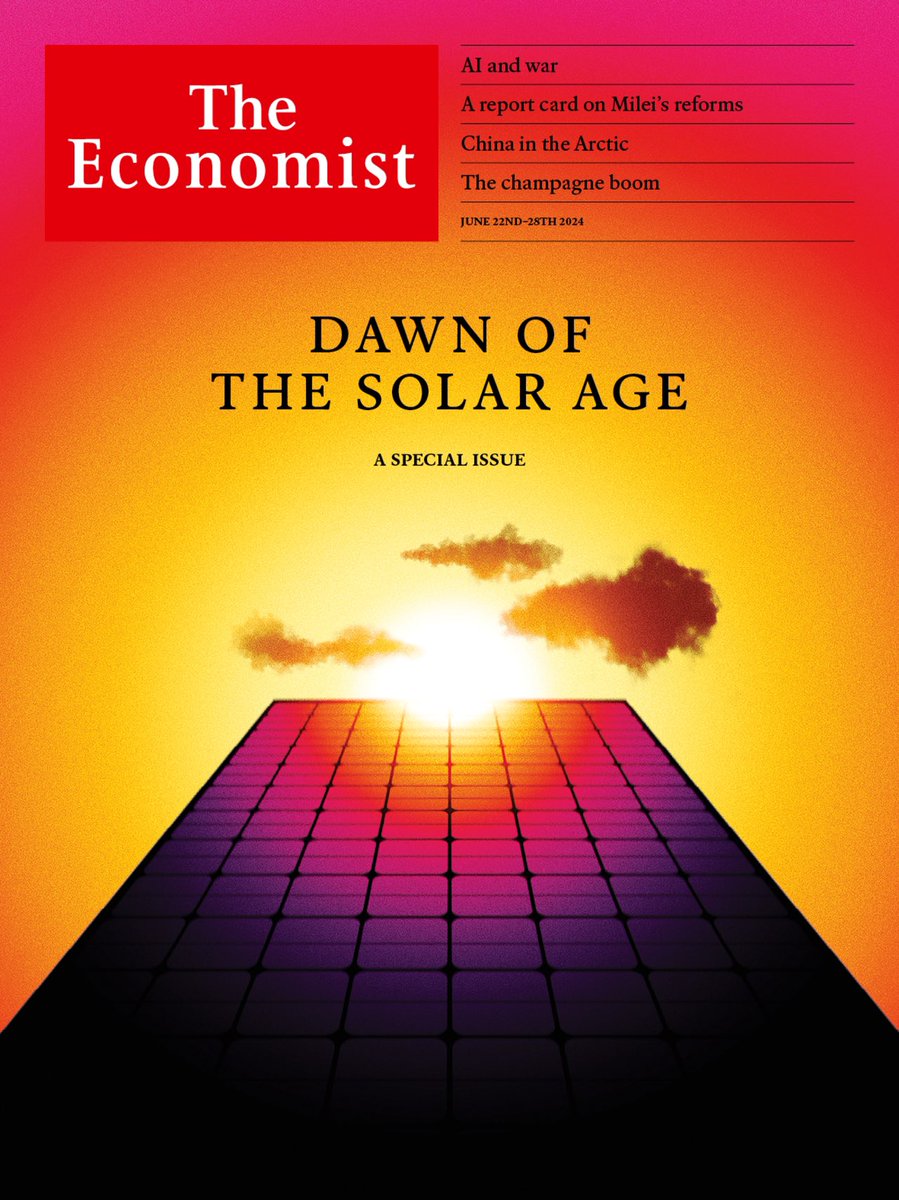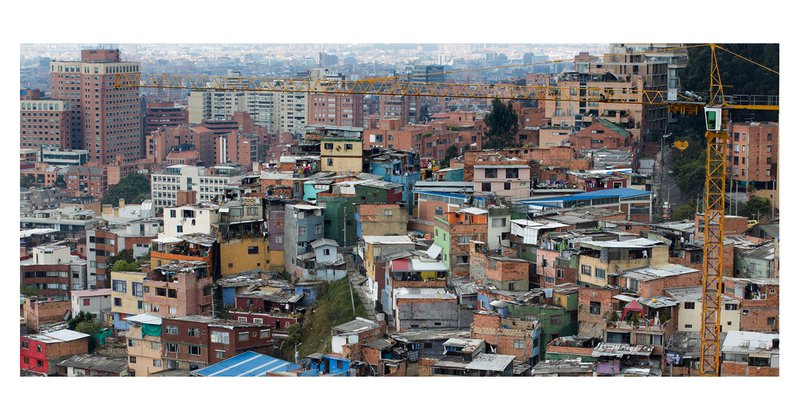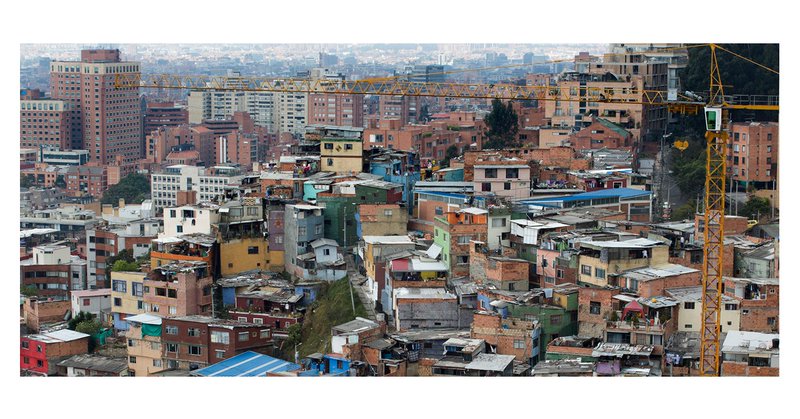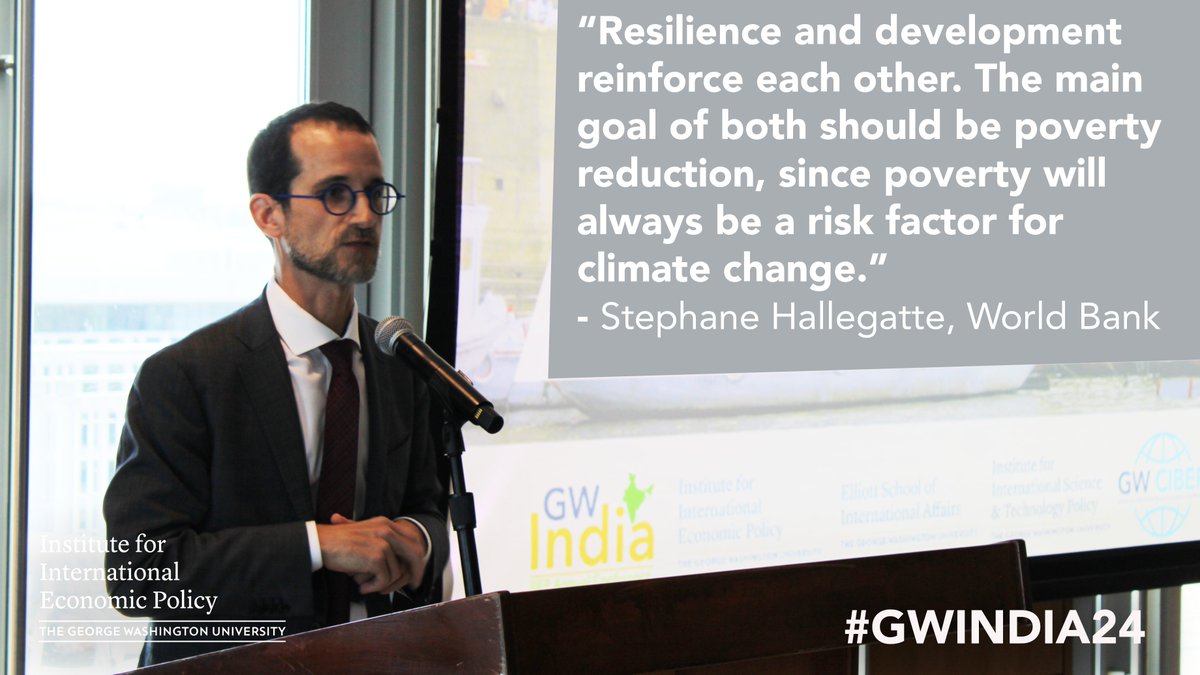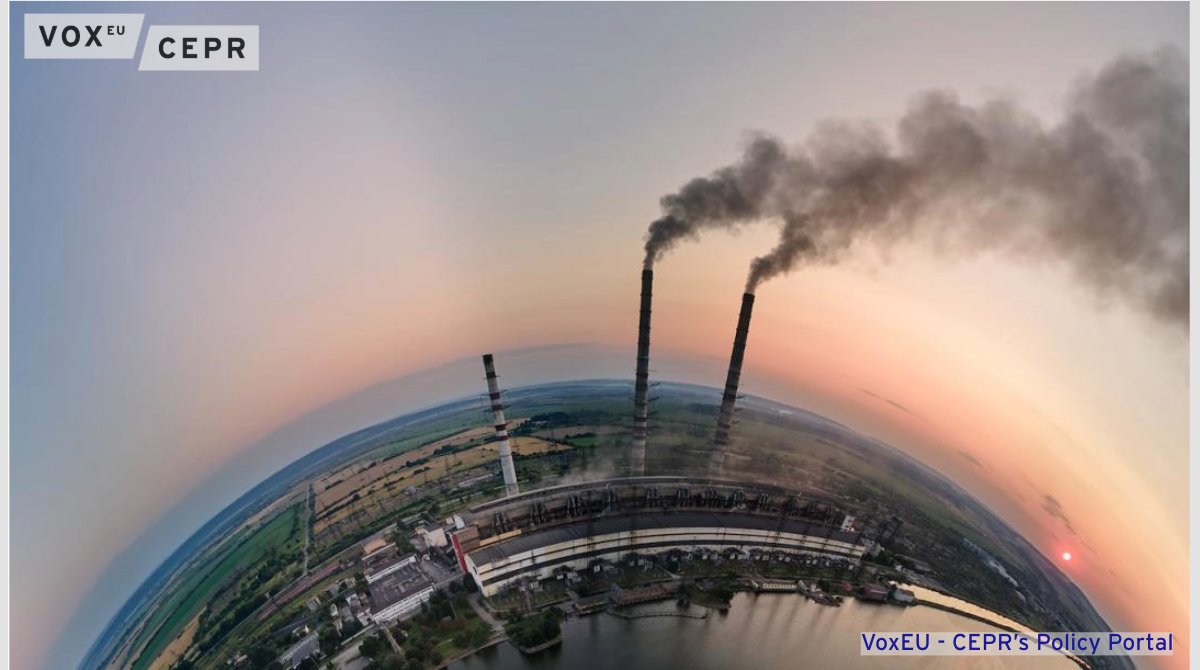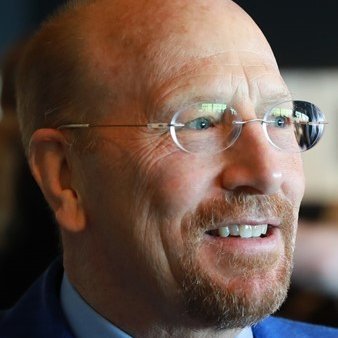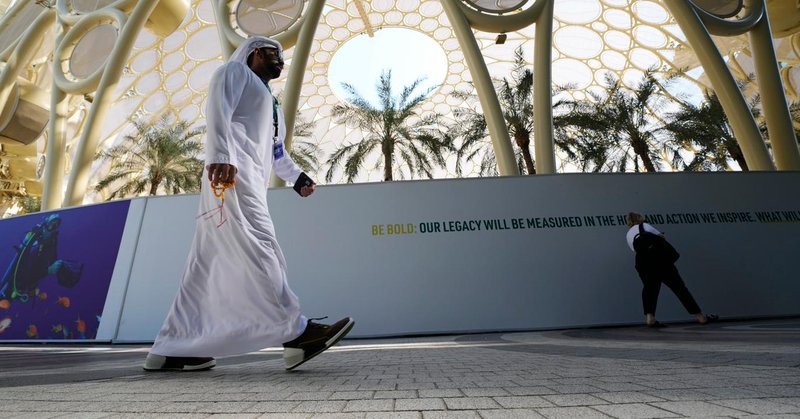
stephane hallegatte
@hallegatte
Followers
3K
Following
924
Media
200
Statuses
2K
Chief Climate Economist at the World Bank. Opinions are my own.
Joined October 2011
New paper in Nature on the implications of ending poverty on climate change, w/ a more realistic approach than existing lit. Good news: even with the most conservative assumptions, ending extreme poverty can be done without compromising climate goals.
7
39
99
Bold take from @TheEconomist in last issue: “Solar cells will in all likelihood be the single biggest source of electrical power on the planet by the mid 2030s.”
90
461
1K
#Adaptation finance is about more than dollar inflows, although this is vital. It’s about making sure that all investments protect people – esp the most vulnerable – from #climate impacts now and in the future. Blog by @hallegatte Jia Li &me. https://t.co/juR2rnrZR9
@WBG_Climate
blogs.worldbank.org
Succesful adaptation is about more than finance. Learn about three aspects along which progress should be measured: more rapid development, more resilient development, and targeted adaptation...
0
1
10
Climate change adaptation requires more rapid development, more resilient development, and targeted adaptation. But climate finance numbers only capture the latter. How does the picture change with a broader perspective? New post w @FerzinaBanaji, Jia Li. https://t.co/2XoyIh6H4I
blogs.worldbank.org
Succesful adaptation is about more than finance. Learn about three aspects along which progress should be measured: more rapid development, more resilient development, and targeted adaptation...
1
4
9
More work needed to represent prevention and preparedness measures, such as debt-financed adaptation investments or contingent credit lines. Many thanks to Florent McIsaac and Charl Jooste!
1
0
3
5 - The welfare impact of a disaster also depends on the ability of the economy to reallocate resources toward reconstruction, and the response of monetary policy (delaying monetary policy response makes the reconstruction faster and reduces total costs).
2
0
3
4 - The welfare impact of a disaster also depends on the preexisting economic situation: economies are (counterintuitively) more resilient during recessions
1
0
2
2- Welfare impacts — proxied by the discounted consumption loss — increase nonlinearly with direct asset losses. 3 - Macroeconomic responses reduce the welfare impact of minor disasters but magnify it when direct asset losses exceed the economy’s absorption capacity.
1
0
2
A few key findings: 1 - Destroyed infrastructure capital makes the remaining non-infrastructure capital less productive, which means that disasters reduce the total stock of capital and its marginal productivity.
1
0
2
The model is extended on 3 fronts: (1) distinction between infrastructure and non-infrastructure capital; (2) production function adjusted to account for short-term complementarity across assets; (3) reconstruction process is modeled to consider post-disaster constraints
1
0
4
A great pleasure to see our paper on the macroeconomic modeling of natural disasters published in Economic Modelling. The paper extends the @WorldBank Macrostructural Model to capture key transmission channels of disasters and their immediate aftermath. https://t.co/VxpYo4fYLX
1
9
40
NEWS >> In 2023, carbon pricing revenues reached a record $104 billion but more needs to be done. Check out the just-released @WorldBank “State and Trends of Carbon Pricing 2024” report to learn more: https://t.co/o43b2BuHEh
#PriceOnCarbon
2
18
36
After a very collaborative development of the Resilience Rating System methodologies, we piloted it on $2.9 billion in World Bank projects. It shows how considering risk and resilience helps design and implement better projects that deliver more and better development gains.
The World Bank developed a Resilience Rating System to help guide investment decisions and improve climate resilience in project design and outcomes. Find out what we learned from applying it to 20+ projects👇
0
3
15
@hallegatte of the @WorldBank discusses the relationship between fostering #development and #resilience. They are not mutually exclusive, and should feed into the goal of reducing climate risk factors like poverty.
0
2
3
Our preliminary analysis, to be updated soon, is here, and we collect feedback! https://t.co/hfwn0ynjX9
0
0
4
Really interesting work, and very aligned with some of our most recent work, counting people at high risk from climate change. Have a look!
🔔🔔New paper alert!!🔔🔔 "Integrating social vulnerability into high-resolution global flood risk mapping" in @NatureComms w/ @agyemangfelix @laurence_hawker & PI Jeff Neal. Open access here: https://t.co/juqlsoz5NO A 🧵 (1/15)
2
0
10
Apparently pre-paying your car rental with @Avis does not mean you’ll have a car. If it’s important, better to go with the competition…
4
0
6
Lower #inequality: A critical measure to align development and #ClimateGoals Philip Wollburg @worldbankdata, @hallegatte @GFDRR, Daniel Gerszon Mahler @worldbankdata
https://t.co/qjbbUjCfh3
0
2
2
See our @cepr_org column on the interplay between poverty, inequality, and climate emissions!
Climate Rescue or poverty reduction? 🔗 https://t.co/HTWCQDahut cc: @wb_research @hallegatte @cepr_org
0
1
8
Un séquençage intelligent de réformes institutionnelles, de programmes d’investissements et de réformes sociales ne ralentit pas l’action climatique – tribune dans @lemondefr, tiré du rapport “Within Reach: the political economy of decarbonization”
lemonde.fr
TRIBUNE. Les économistes de la Banque mondiale Stéphane Hallegatte, Camilla Knudsen et Penny Mealy listent, dans une tribune au « Monde », les conditions de réussite des actions menées contre le...
0
0
9
Missed Devex’s recent discussion with the World Bank? Dive into the heart of the climate crisis and political economy of climate transformation with Dr. @hallegatte of the @WorldBank and @raj_devex of @Devex. #DevexEvent #ClimatePlus @ #COP28 #LivablePlanet with @WBG_Climate
1
3
95


